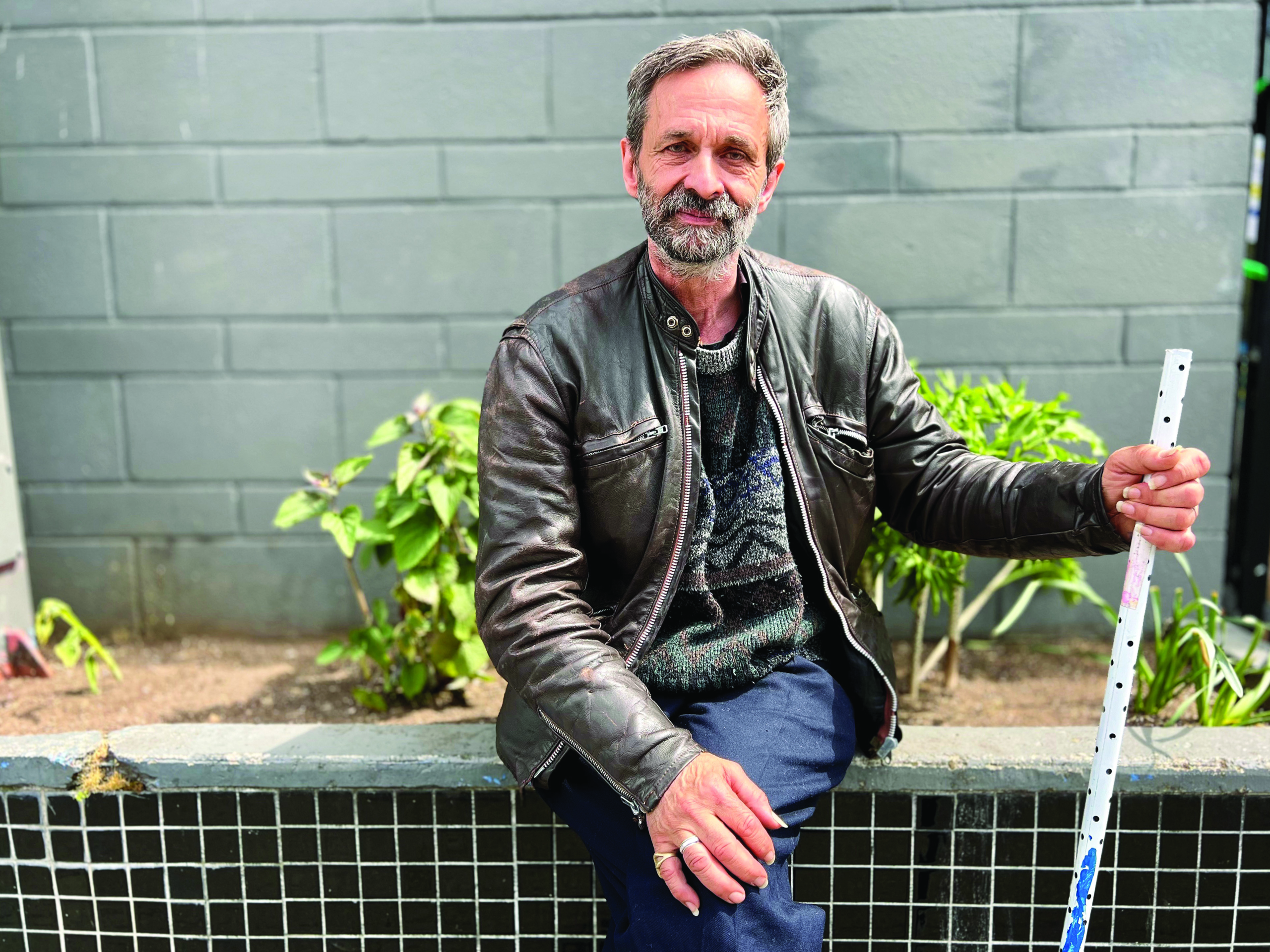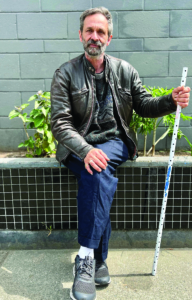Normand’s Story
“People want to put you down, say you’re not smart. You have to build a sense of survival.”

Normand’s Story
Normand — known on the streets of Victoria as The Poet — is a man who feels immensely. His thoughts come to him in poetry, the words complete with intense emotion.
Born in Quebec some 62 years ago, Normand was the 4th of 7 children, but always felt like an outsider.
“My childhood was very harsh … tough,” he says. “I’m a rebel by nature. In my family, I was the black sheep.”
That rebellious streak saw Normand attend reform school at the age of 7, and enter foster care at the age of 10.
Reform school wasn’t a happy place as “most of the teachers were in the midst of a breakdown,” says Normand. “They all seemed depressed.”
Depression is also how Normand ended up in foster care as his mother suffered from the malady and his father struggled to cope with all the children.
At the age of 12, Normand was given the choice of continuing in foster care or returning home to his parents. He chose to return home.
“In order to be part of the home, I had to support myself and become one of the main people who took care of the home.”
Normand became a skilled cleaner — “laundry, sweep the floor, wash the walls, windows, the garden, pretty much everything” — keeping both the inside and the outside of the home in top shape. It was a skill that he would come to rely on throughout his life.
At school, he faced further struggles as “people want to put you down, say you’re not smart, things like that. You have to build a sense of survival to go through that, to keep your head up.”
 After school, Normand enrolled in a coaching program to help “get my life back together” and understand what direction he wanted to go.
After school, Normand enrolled in a coaching program to help “get my life back together” and understand what direction he wanted to go.
“I had social issues,” he says. “And needed to learn how to build up trust in a workplace environment otherwise you’re screwed for life.”
Fortunately, he had an ingrained work ethic and learned skills from keeping the family home clean. He also picked up carpentry skills from his father, a professional carpenter and housing contractor.
And while Normand worked for his father for a bit, the relationship was strained.
“I was still the black sheep back then,” he says.
Despite all this hardship, Normand found solace —and romanticism — in his own writing.
“I was creative from an early age,” he says. “Writing fairytales and stories from the age of nine.”
Unfortunately, young Normand’s creativity was forced into the closet as people accused him of showing off.
The turmoil is clear in his voice as Normand explains, “When you have a gift, it is both a blessing and a curse. I gave up on it many times, but always returned.”
As an adult, Normand began exploring his talents further and, having fallen in love, found a deep connection with romantic poetry.
When he turned 30, Normand’s mother passed away, and he decided it was time to leave Quebec. At first, he travelled to France and Spain before choosing Victoria. When he landed on Vancouver Island, he didn’t speak English.
Enrolling in an ESL (English as a Second Language) course at Camosun College, Normand began to explore his new world. He organized a chess club, rallied to build a new gymnasium, and joined the student council.
During this time, he worked as a dishwasher, cleaner, and carpenter, but conflict at work and school made things slide sideways and he found himself struggling to pay rent.
In the gap between losing his job and claiming Employment Insurance, Normand lost his housing. He ended up living on the streets of Victoria and going to Our Place for meals.
“I already knew about Our Place,” he says. “When I had no money, that’s where I would eat.”
Life on the street was difficult. Normand faced a lot of theft and violence as people saw him as an easy mark.
“It’s not easy being a poet when you have to raise your fists.”
Fortunately, Normand has found a home in supportive housing and is excited to be using his gift to perform poetry readings in public and publishing in local magazines.
He has plans to write several books, including one on Romanticism, a book of poetry about hardship, and a book of thoughts.
“I want to unify people,” he says, “rather than divide.”
Leave a Reply
Want to join the discussion?Feel free to contribute!